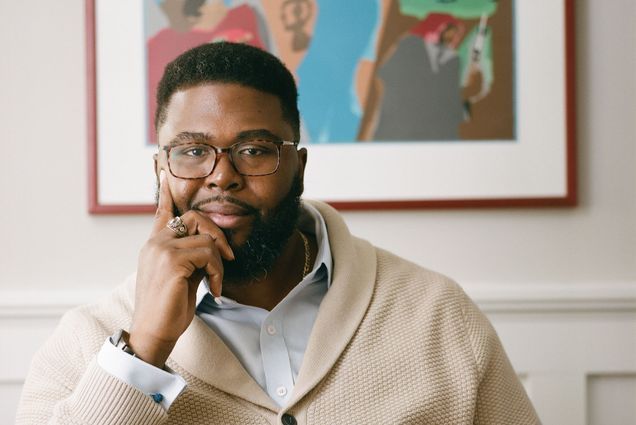Anthony Jack ’07 Discusses Class-Based Inequalities on College Campuses
Anthony Jack ’07, a professor at Boston University, gave a talk last week centered on the topic of class-based inequities in higher education. Jack discussed two of his books which detail the struggles that disadvantaged students face at elite colleges.

Anthony Jack ’07, associate professor of higher education leadership at Boston University, returned to campus on Oct. 1 for a talk titled “From Access to Inclusion: A Discussion about Challenges in Higher Education.”
While Jack’s acclaimed first book “Privileged Poor: How Elite Colleges are Failing Disadvantaged Students” focused on less privileged students’ struggle to find academic success and opportunities in colleges, Jack said his new book, “Class Dismissed: When Colleges Ignore Inequality and Students Pay the Price,” aims to shed light on these students’ vulnerable pasts before college and outside of campus.
Assistant Professor of Black Studies and American Studies Jallicia Jolly moderated the talk. Many students, professors, staff, and Jack’s acquaintances attended, resulting in an almost-full Lipton Lecture Hall.
The book is framed by what Jack calls a dual pandemic — a time of Covid and racial tensions since 2020 — but he specifically described it as “not a Covid book.” Instead, Jack focuses on what he called “place-based problems,” or systematic inequalities exacerbated by Covid that have influenced how students perceive education and work.
During the talk, Jack criticized colleges’ assumptions that students already know the resources they offer: for example, how professors always talk about “when” office hours are but never “what” they are. One student he interviewed for his book recalled being “terrified” of the job fair. In his opinion, colleges’ assumptions that students understand and are comfortable accessing resources represent a “laissez-faire” approach, which produces the “hidden curriculum” — opportunities that almost only privileged students can take advantage of.
“Whatever we’re celebrating [in our available opportunities], our policies reflect biases and lack of understanding,” Jack said. “It’s in the everyday running of the universities that you see the greatest inequalities.”
Jack said the class-segregated labor market on college campuses is an issue that Covid exacerbated. He noticed that while more privileged students took on jobs such as TAs that continued during Covid, lower-income students generally went for “what they knew” — jobs that involved more physical labor and were, in turn, significantly more vulnerable to the impacts of Covid quarantines and campus shutdowns.
Jack suggested that many of these problems have roots long preceding the students’ arrival at college and continue to impact students when they return home. Jack himself never studied in Frost Library as he felt he was “always being watched and patrolled in libraries” growing up. Other students Jack interviewed described falling asleep and waking up to ambulance sirens every day at home, having to temporarily leave school to financially support their families, and “getting hated on” in their neighborhoods for wearing college merch.
“The moment a [first-generation] student gets their acceptance letter, they’re entering a black box which their parents don’t understand,” Jack said.
While acknowledging the depth of current inequalities on college campuses, Jack maintained a positive outlook. He said he hopes that his attempts at accessibility in “Class Dismissed,” including leaving a policy suggestion at the end of every section and avoiding “hiding behind jargon” in the book’s language, can help the book sponsor a cultural shift while remaining a readily available “cheatsheet” for students.
“I want the book to be as accessible and relatable as possible,” Jack said. “I don’t want to be the second person in line to say [to students] that college is not for them.”
During the Q&A session, many students mentioned that they found Jack’s talk relatable to their own experiences. Isaac Manzo ’26, who aspires to become a professor, described the discussion as “intriguing and particularly meaningful.”
“I think it helps to assess where we are,” Manzo said. “As a first-gen[eration], low-income student, I can resonate with exactly the conversation that happened.”
When asked about “how we need to know ourselves better,” referring to Amherst’s recent changes in racial demographics, Jack’s response was simple: “that hurt.”
“I still don’t have the words for how much it hurt,” Jack said. “I’m still processing — the place I love is hurting. We need to double our efforts to remind people that we’ve found ways to create miracles before. This is where we fell to but not where we’re going to stay.”





Comments ()